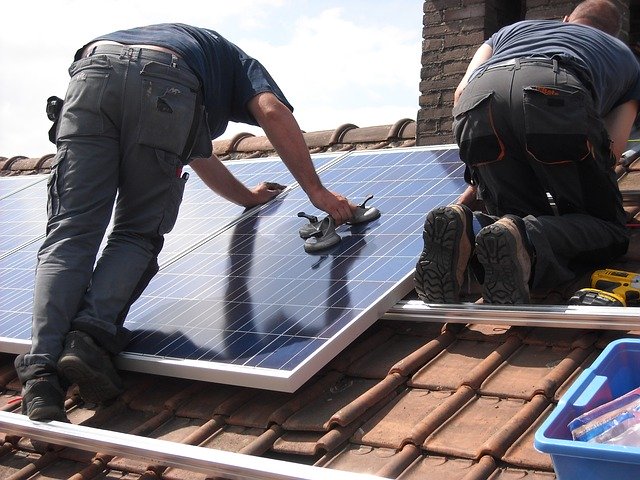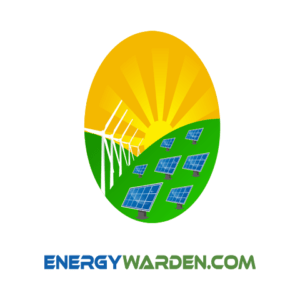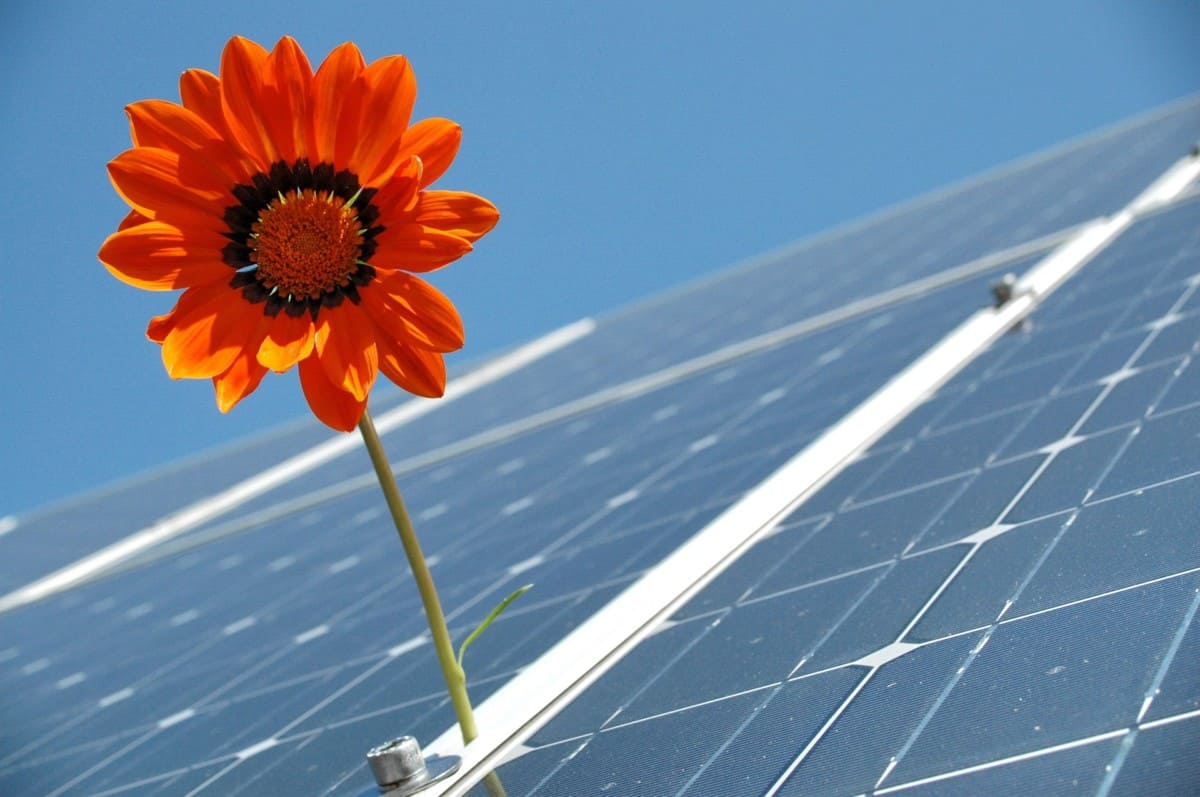Pros and Cons of Solar Energy
Having the sun as its source, the use of solar energy is increasingly becoming very popular. By now, you might have noticed that there are many solar energy ads and sales targeting those who are looking for alternative sources of energy. But if you want to make the right decision, you need to understand the pros and cons of solar energy.
Solar Energy Pros and Cons
This is one of the rapidly growing energy sources around. There are several reasons why people are turning to it while others are still reluctant. The section below highlights the pros and cons of solar energy.
Pros of Using Solar Energy
So many institutions and individuals are turning to this energy source due to its many benefits. If you are planning to use solar energy, here are the main advantages that you can expect:
Reduced Electricity Bills
Solar energy can drastically or even totally reduce your electricity bills. Installation of solar panels means that some of your home appliances and systems that use electricity can now use solar power.
As you start to generate your own source of energy, you become less reliant on the power grid. The result of this is a significant reduction in the electric bills.
The best thing about buying solar panel systems is the long lifespan. On average, a solar panel system has a lifespan of 30 years. This is almost over a quarter of the century.
So once you buy and successfully install the panel, you will have to forget about paying huge electric bills for years. And if you customize your devices effectively, you can totally eliminate your dependence on electricity from the national power grid.
Solar Power is Now Cheaper
For the first time in years, solar power is now cheaper than ever. As the price of electricity continues to go up, the cost of solar energy continues to go down. Research reports that over the past decade, the total costs of solar energy has reduced by more than 70%.
This means that more homeowners and other institutions that want to rely on this energy can conveniently install it. If you are in the US, you can even take advantage of solar incentives. This means that you can get a significant cut from the federal tax credit.
Customized Independence
With solar energy, you can sufficiently plan how and when to use it. And if you have storage batteries, this means that you have much better energy independence. This is because you are able to create your own source of energy and you no longer have to rely on the traditional electric grid.
Having control of power supply means that you have power on how to use it. With solar energy, you don’t have to worry about the total costs no manner how you use it.
Low Maintenance and Improved Technology
The current solar systems are made with advanced technology. They are more efficient and can generate a lot of energy even with minimal sunlight contact.
With the development and use of quantum physics and nanotechnology, solar panels can triple their energy output.
On the other hand, maintenance is quite easy, unlike electricity. Generally, you only need to clean the panels a couple of times annually. With the long lifespan and years of warranties, this is a low-maintenance system that you can fully rely on.
Shared Solar
Looking at electricity as the main source of energy, there is no way you can share the costs. Each homeowner has to pay for their electric bills separately. But homeowners who want to use solar energy can share the upfront costs.
Besides sharing the initial costs, shared solar can also be installed in community gardens due to limited residential roof spaces. This provides the much-needed flexibility to those who don’t have insufficient rooftop space or initial funds.
Note: almost 1/5 of homes in America are not fit for the installation of solar panels. With the introduction of community solar gardens, all interested homeowners now have the chance of installing solar panels.
A Renewable Source of Energy
The sun is a renewable source of energy and you can always trust that it will rise again in the morning. Regardless of where you are in the world, the sun rays can be harnessed to produce solar energy.
It can’t be depleted. As long as there is the sun, you can always get your energy supply. According to scientists, the sun will be available for more than 5 billion years.
Multiple Applications
There are many applications that can be used with this type of energy. You can use it to generate heat or electricity. That’s why it’s one of the top alternatives for regions that are off the national power grid. It can be used to produce electricity in such areas.
Besides that, it can be used to distill dirty water in areas that have limited or scarce water resources. Did you know that it is solar energy that’s used to power satellites when they are in space?
Eco-Friendly
With the world turning into clean energy sources with minimal pollution, solar energy is environmentally-friendly. It can generate power without producing toxic gases or emissions.
The energy produced by solar panels is usually clean and free if greenhouses gases that normally lead to global warming.
Note: if you are serious about sustainability and global warming, then you can play your role by using a clean source of energy. It should be noted that if you choose to install a solar panel system, you can end up reducing your carbon footprint by over 3,000 pounds per year.
Cons of Using Solar Energy
There are numerous pros and cons to solar energy. Just like other energy alternatives using solar also comes with its downsides. Here are some of the cons of using this type of energy source:
The System Needs Lots of Space
If you are living in a city apartment or an area with limited space, then installing solar energy may be tricky. Generally, a solar system needs a large space where the equipment can be effectively installed for efficient production of energy.
In city apartments, installing solar panels can be a huge inconvenience because of the limited space. Did you know that every one kilowatt of the current conventional solar panels, you need around 100 square feet of space.
It’s impossible to get such a roof space in most cities. If you can’t get enough space, then you will have to forgo installing solar panels.
Not All Roofs Are Effective

The installation process of solar panels requires the placement of a rack on the roof. However, not all types of roofs qualify for the installation of a solar panel system. For instance, roofs with cedar tiles and slate can’t effectively hold the rack.
Besides that, there are homes that have roof decks and skylights. All these features make the installation of the panels challenging. But if you are keen on fully having such a system, then you can opt for ground-mounted panels.
The Manufacturing Process Can Lead To Environmental Damage
When we look at the pros and cons of solar energy, a lot of people associate it with eco-friendliness. However, this is not completely true. While solar panels don’t emit toxic chemicals, there is significant pollution that’s emitted during the manufacturing process.
Research indicates that there are solar panels that come with toxic pollutants such as sulfur hexafluoride. Although the overall impact of sulfur hexafluoride on climate is not significant compared to carbon dioxide, it’s still toxic.
Note: although this is a notable downside of solar panel, the overall environmental impact of using this source of energy is quite small compared to the effects of mining or burning fossil fuels.
You Can’t Move With Solar Panel
The flexibility of this equipment is quite limited. If you have successfully installed solar panels on your home, know that it’s not easy to move with them. This is because during the net metering agreement, the equipment normally gets fixed on your property.
This brings complications when it comes to moving. It’s worth noting that the process of removal and reinstallation of the solar panels is quite expensive.
Note: the upside of this is that if you are selling your property, then the solar panels help to add value to it. So, you will end up selling it at a higher price.
The Sun is an Intermittent Source
Solar energy advantages and disadvantages almost intertwine. While the sun is seen as a renewable source of energy, on the downside its supply is intermittent. The reason why we are saying this is because:
- The sun rises every day without fail. However, it doesn’t shine at night and this means that solar panels can’t produce energy at night.
- It should be noted that the sun’s intensity throughout the day varies. It’s mild in the mornings and evenings.
- Location as well as the season plays a crucial role in determining the duration of sunshine. What happens during winter where some zones literally receive minimal sunlight? Cloud and snow are also big hindrances as they block the sun rays.
So, can we fully depend on solar energy? Well, it’s almost impossible. This is important when you are running an organization that needs a constant supply of energy. It should be noted that solar energy can’t be relied on critical uses as its dependability is still quite low.
Note: researchers and investors are coming up with possible solutions to make it possible for solar panels to handle large base loads.
For instance, there is the development of large and efficient batteries to allow solar panel users to store energy. This allows them to have a solid backup and conveniently draw energy from the batteries when needed.
The upfront cost is quite high
This is a serious drawback of using a solar panel system. The high upfront cost is one of the top reasons why a lot of people have failed to install solar panels. Taking a look at the US, for instance, a six-kilowatt solar panel can cost nearly $20,000 on average. Additionally, it costs around $3.00 per watt of solar in the US.
This is quite a high amount even with the availability of many solar financing organizations. When taking a look at the upfront costs, it’s also important to understand that the price varies from one state to the next.
Finding Qualified Installers Isn’t Easy
Although the solar panel market isn’t something that’s completely new, finding the right installers will take time. This sector is rapidly growing but the confusion arises where there are many installers without the right knowledge.
The aggressive marketing tactics exhibited by most of the sales rep and installers is what throws people into confusion, making it difficult to find the right handlers.
Tips for Effectively Using Solar Energy
To efficiently make use of your solar energy system, here are some of the tips that you can implement in your home:
- Use devices that consume a lot of energy during the day: they will be able to utilize the high solar energy that’s available during the day. High-consumption devices include the washing machine, stove, and dishwasher among others.
- Install LED lights: they consume less energy, unlike incandescent bulbs.
- Turn off devices on standby: this includes unused devices such as computers, TV, gaming consoles, and kitchen appliances among others.
- Store your solar energy: you need to have a reliable energy system, even though the sun’s energy supply is not 24/7. So, get a storage battery to increase the efficiency of solar energy.
- Frequently get the panels cleaned: for efficient supply of the sun’s ray, make sure the panels are cleared of leaves, bird droppings, and dust.
Conclusion
Solar panels provide a flexible solution to those who are looking for alternative sources of energy. Its cost-effective in the long run helps to reduce the carbon footprint and can increase the value of your home.
However, you need to prepare yourself for the high upfront costs, limited movement, and intermittent sun supply among other things. Carefully weigh the solar energy pros and cons before making your final decision.
More information can be found here or next read my informative article How solar energy works with diagram.
Recent Posts
Wind Energy and Its Economic Benefits for Local Communities Firstly wind energy has emerged as a powerful driver of economic development, particularly in local communities. It provides a...
Potential Energy in a Spring: Understanding the Fundamentals
Potential Energy in a Spring Firstly, understanding the potential energy in a spring is fundamental to grasping how energy is stored and transferred in various physical systems. Springs, as...


